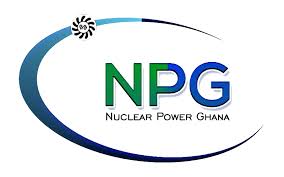Stakeholders’ kick against Section 16(1) of the NPGL Draft Bill
Stakeholders' kick against Section 16(1) of the NPGL Draft Bill

The majority of stakeholders, drawn from civil society organisations, the energy sector, academia, law, and the media, have expressed grave displeasure over a clause in the draft bill for the establishment of Nuclear Power Ghana Limited (NPGL) that grants the president/s the power and authority to appoint management and staff for the corporation.
What many described as a contentious clause, Section 16(1) of the NPGL draft bill grants the President authority to appoint staff needed for the efficient functioning of the corporation, in accordance with Article 195 of the 1992 Constitution.
“The President shall, in accordance with Article 195 of the Constitution, appoint for the corporation other staff who are necessary for efficient and effective performance of the functions of the corporation.”
Most participants at a day’s forum dubbed “Stakeholder Engagement on the Nuclear Power Ghana Limited Draft Bill’ held at the National Petroleum Authority (NPA) Conference Room in Accra on Tuesday, June, 24, 2025 kicked against any clause in the bill that grants president/s to appoint into or remove from public institutions.
Participants worried about the overly concentrated power in the Executive arm of government, especially the president, and warned that such a provision, if left unchanged, could politicize the staffing of NPGL and compromise the corporation’s autonomy and technical efficiency.
“This is a technical body, not a political entity. Allowing the President to appoint all staff opens the door for partisan interference. The responsibility of appointing staff should fall under the jurisdiction of the board or a special body.
I believe once the board is established should have full control over the recruitment and staffing process, and that would ensure that appointments are based on merit and relevance to the corporation’s specialized mission,” a participant reiterated.
Even though the draft bill aligned with a provision in the 1992 Republican Constitution of Ghana that allows the President to appoint public officers, participants argued that the provision has not been helpful; thus proposals have been sent to the Constitutional Review Committee currently working to amend portions of the Constitution expunge Article 195 from the Constitution.
“Since proposals have been sent to the Constitutional Review Committee to expunge Article 195 from the Constitution, it is only right that such clauses are excluded from new enactments.
Again, in the context and nature of NPGL, its operations are highly technical, and such an entity requires a more decentralized approach,” another participant said.
The bill already proposes a nine-member board to govern NPGL, comprising experts from various sectors, and here again, it’s the president who is mandated to appoint a board chairperson.
At the end of the day’s stakeholders’ engagement organised by the Nuclear Power Ghana (NPG), under the tutelage of the Ministry of Energy and Green Transition organised by the Nuclear Power Ghana (NPG), under the tutelage of the Ministry of Energy and Green Transition, the consensus among participants were very clear that: while the President’s constitutional role must be respected, operational independence must not be sacrificed.
Although we need to respect the 1992 Constitution, we also need checks and balances to ensure the long-term credibility of Ghana’s nuclear power drive; hence, policy regulations and laws must be tailored to suit the unique nature of NPGL.




